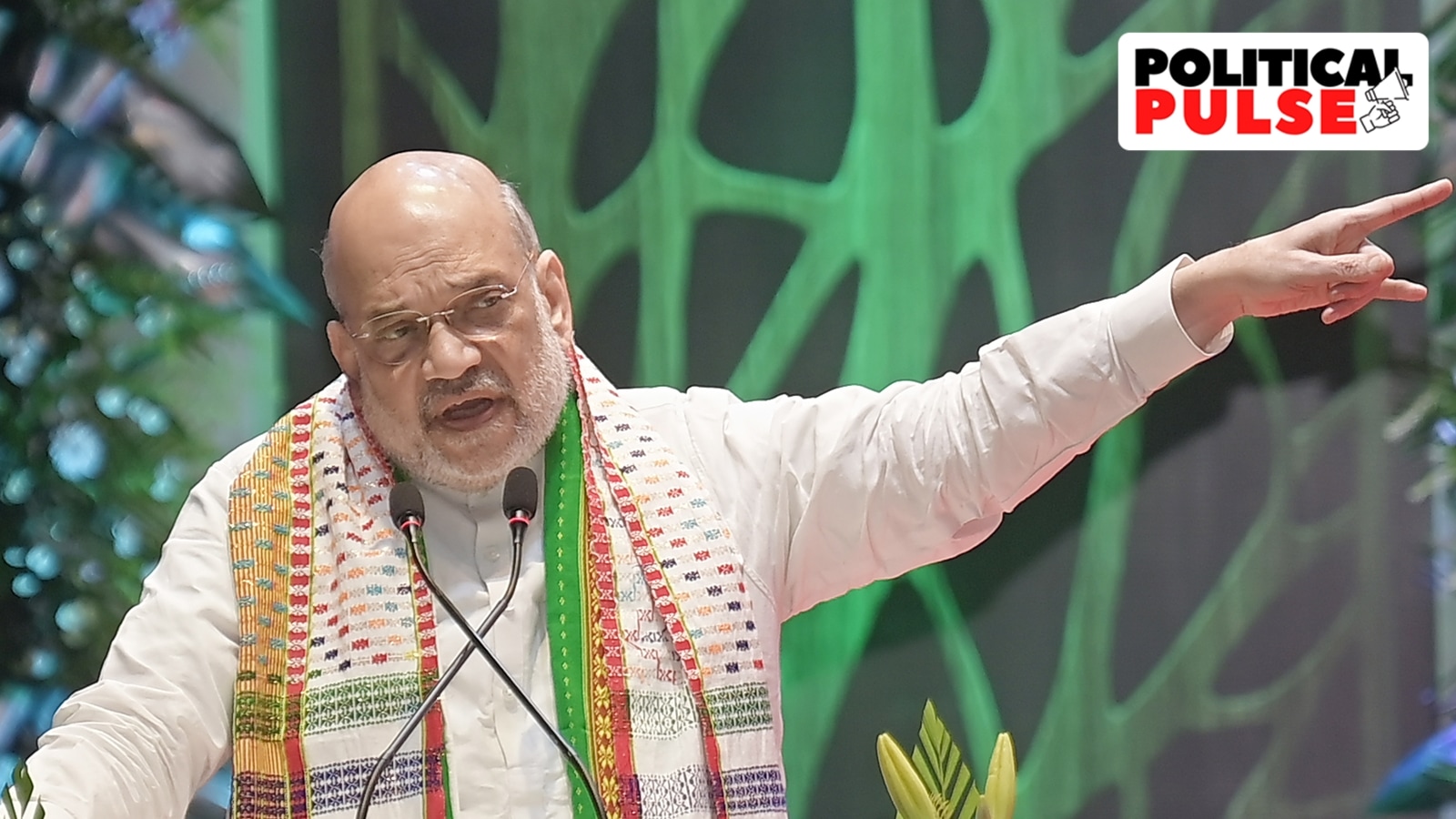 |
|
The recent political landscape in Maharashtra has witnessed significant upheaval, largely shaped by the resounding victory of the BJP-led Mahayuti alliance in the November Assembly elections. This victory, securing 235 out of 288 seats, has dramatically altered the power dynamics, leaving the opposition Maha Vikas Aghadi (MVA) – a coalition comprising Uddhav Thackeray's Shiv Sena (UBT), Sharad Pawar's Nationalist Congress Party (NCP-SP), and the Congress – significantly weakened. Union Home Minister Amit Shah's address at the Maharashtra BJP's state executive meeting in Shirdi served as a stark declaration of this new reality, effectively closing the door on any potential reconciliation with the MVA.
Shah's sharp criticism of both Uddhav Thackeray and Sharad Pawar, while simultaneously reaffirming the legitimacy of their rival factions – Eknath Shinde's Shiv Sena and Ajit Pawar's NCP – underscores the BJP's unwillingness to compromise or forgive past perceived betrayals. The BJP leadership harbors deep resentment towards Uddhav Thackeray's decision to abandon the National Democratic Alliance (NDA) in 2019, a move that Shah personally felt was a significant act of disloyalty. This sentiment is further fueled by the BJP's ambition to wrest control of the Brihanmumbai Municipal Corporation (BMC) from the Sena (UBT), a stronghold they have held for over three decades. The upcoming local body elections, encompassing 29 municipal corporations including the BMC, serve as a crucial testing ground for the BJP to consolidate its power and further marginalize the opposition.
Chief Minister Devendra Fadnavis's emphasis on the upcoming local body elections highlights the BJP's strategic focus on solidifying its position. The party's internal messaging clearly frames the Sena (UBT), NCP (SP), and Congress as formidable rivals, leaving little room for negotiation or alliance. This strategy is further reinforced by the state BJP chief Chandrashekhar Bawankule's statement emphasizing the party's uninterrupted momentum, encompassing preparations for local body elections, membership drives, and outreach to new areas. The BJP’s aggressive post-election stance reflects a calculated strategy to capitalize on its electoral triumph and assert dominance in the state's political landscape.
However, the BJP's assertive stance has not been met without response. Supriya Sule, NCP(SP) MP and daughter of Sharad Pawar, characterized the attacks as a mere attempt to garner headlines, while Sena (UBT) MP Arvind Sawant countered by questioning Shah's moral authority to make such pronouncements. Interestingly, a senior Congress leader suggested that regional parties, like the Sena (UBT) and NCP (SP), are known for their political flexibility, implying a potential shift in alliances based on circumstances. This prospect is viewed as beneficial to the BJP, potentially bolstering its numbers at the Centre. The possibility of such a realignment is not entirely dismissed, even by the BJP, underscoring the fluid nature of Maharashtra's political dynamics.
Recent events have fueled speculation about potential shifts in the political landscape. The MVA itself exhibits internal fractures, with the Sena (UBT) opting for a solo campaign in the upcoming local body polls. Adding to the intrigue, both the Sena (UBT)'s mouthpiece, 'Saamana,' and Supriya Sule have openly praised Fadnavis's initiatives, including the announcement of a second steel plant in Gadchiroli. Similarly, Sanjay Raut, a previously vocal critic of Fadnavis, has also voiced his appreciation for the Chief Minister's efforts. Further fueling speculation of a realignment is Aaditya Thackeray's invitation extended to Prime Minister Modi and other central ministers for the inauguration of Bal Thackeray's memorial, indicating a potential softening of stances.
Within the NCP, the possibility of a merger between the two factions gained momentum after Asha Pawar, Ajit Pawar's mother, offered prayers for the unification of all Pawars at the Vitthal-Rukmini temple. This event, coupled with Sharad Pawar's praise for the RSS, the BJP's ideological parent, at a party meeting, added fuel to the speculation fire. The seemingly contradictory actions of different leaders within the MVA and the open appreciation of BJP initiatives by key figures from both the Sena (UBT) and NCP (SP) paint a complex picture of a political landscape in flux. While Shah's statement seemingly shuts the door on immediate reconciliation, the underlying currents suggest that Maharashtra's political landscape remains far from settled, with the potential for further realignments and surprises in the near future. The upcoming local body elections will serve as a critical test for the newly established power dynamics, offering a glimpse into the future of Maharashtra's political alliances.
